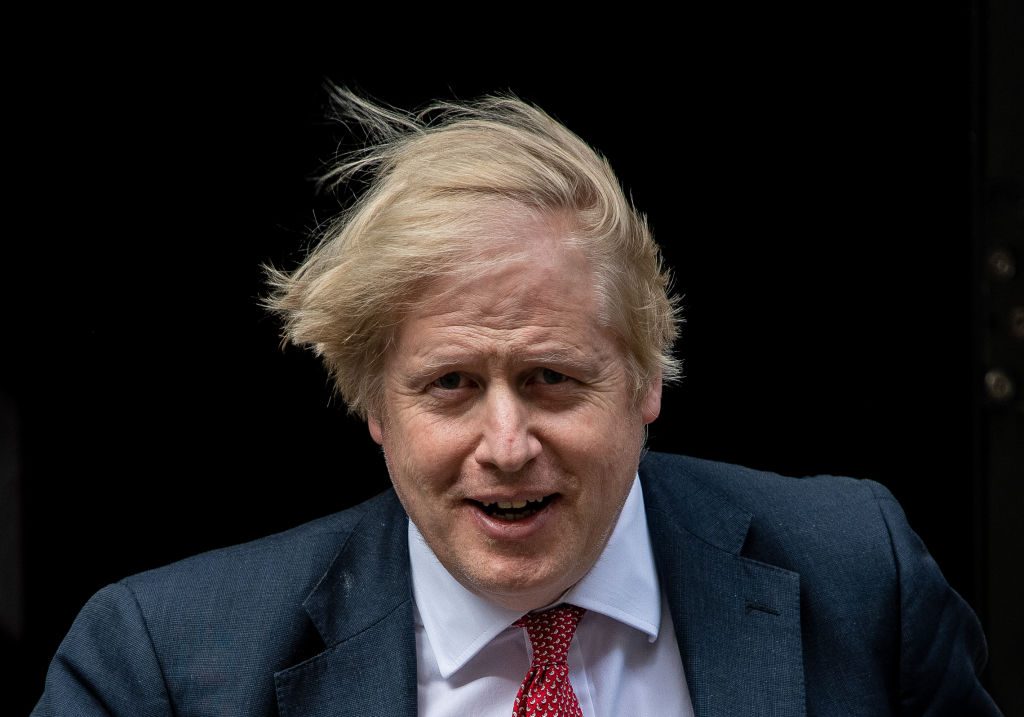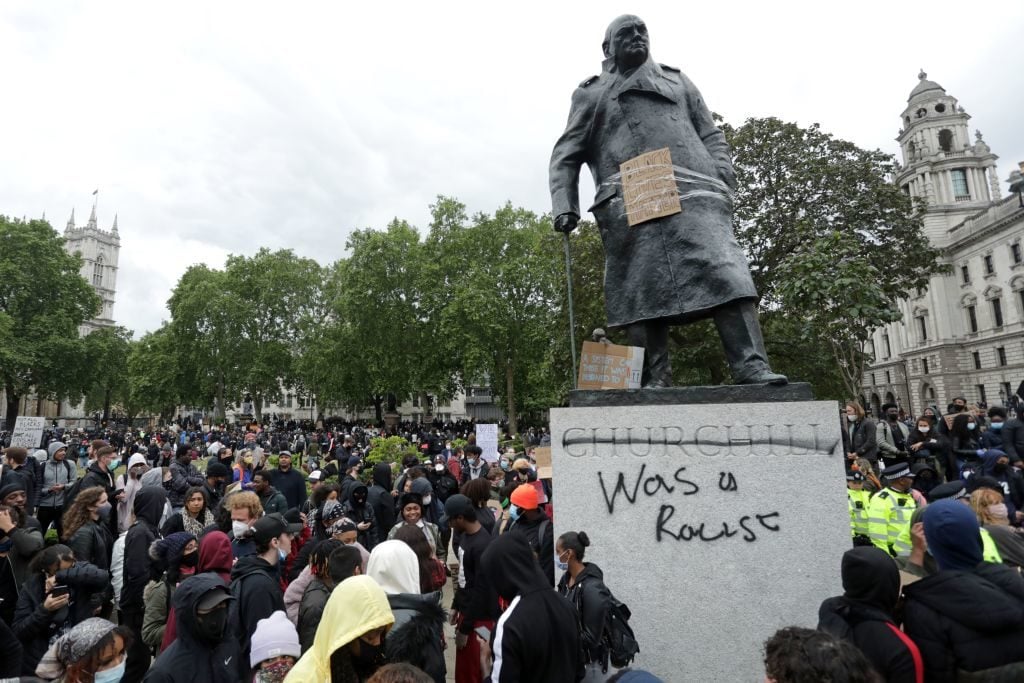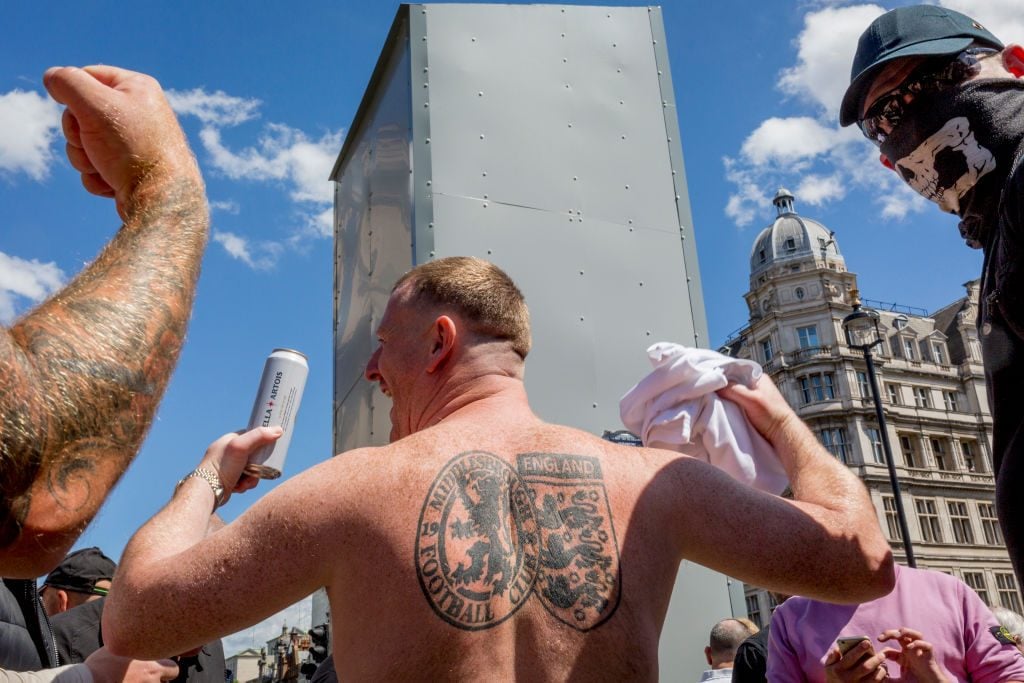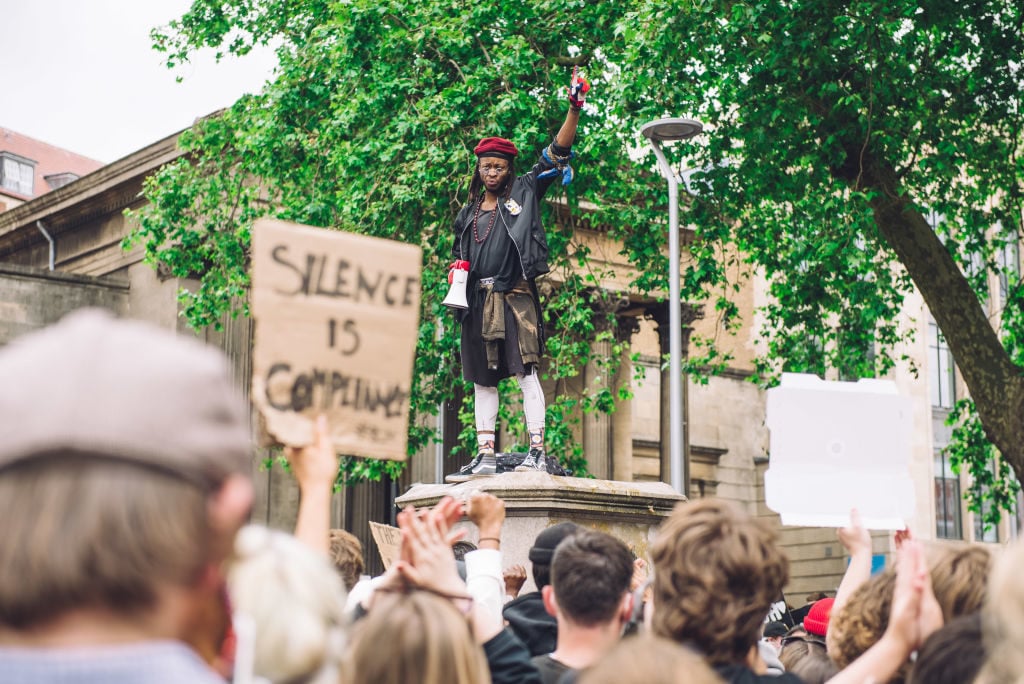Politics
Boris Johnson Says He Will Defend Winston Churchill’s Statue ‘With Every Breath in My Body’ as the Battle Over the UK’s Memorials Intensifies
The British Prime Minister also called for more monuments celebrating Black Britons.

The British Prime Minister also called for more monuments celebrating Black Britons.

Naomi Rea

The British Prime Minister Boris Johnson has defended Winston Churchill from protesters who wish to bring down a monument celebrating the wartime prime minister in London.
Johnson argued in an op-ed for The Daily Telegraph that the debate over monuments to problematic historical figures that is currently roiling the UK glosses over the real issue of racism in contemporary society. “We need to attack the substance of the problem, not the symbols,” Johnson said. He vowed to establish a commission to tackle systemic inequality in the country as well as to build more monuments celebrating the accomplishments of Black Britons—but some remain skeptical that he will prioritize these steps.
The op-ed was published after a statue to a slave trader came down in Bristol last week during ongoing Black Lives Matter demonstrations. Since then, protesters have set their sights on other monuments to problematic historical figures, including Winston Churchill.

The statue of former British prime minister Winston Churchill is seen defaced in Parliament Square, central London after a demonstration outside the US Embassy on June 7, 2020. Photo by Isabel Infantes/AFP via Getty Images.
While the wartime prime minister is often celebrated as a hero for his role during World War II, it is seldom mentioned that he also held racist beliefs. Among other things, such as advocating the use of chemical weapons against “uncivilized tribes,” Churchill once refused to admit wrong had been done to Native Americans or aboriginal Australians, as “a stronger race, a higher-grade race… has come in and taken their place.”
Ahead of a weekend of fiery protests between BLM demonstrators and far-right extremists coming out of the woodwork to “protect” statues, the Mayor of London Sadiq Khan made the decision to board up some of London’s more controversial monuments, including those to Churchill and Nelson Mandela.
While Johnson condemned the actions of protesters who purportedly came to the statue’s “defense,” he said that it is “absurd and deplorable” that Churchill should be the subject of attack in the first place. The former prime minister happens to be a personal hero of Johnson’s and the subject of his 2014 book, The Churchill Factor: How One Man Made History.
“Would it not be better and more honest to ask our children to understand the context, to explain the mixture of good and bad in the career of Churchill and everyone else?” Johnson wrote. “I will resist with every breath in my body any attempt to remove that statue from Parliament Square.”

A large group crowd of right-wing groups and veterans gathered at the boxed-in statue of Winston Churchill. Photo by Richard Baker / In Pictures via Getty Images.
The politician also weighed in on the wider debate about monuments, saying that he is “extremely dubious” about “the growing campaign to edit or photoshop the entire cultural landscape.”
Some have received Johnson’s pledge to tackle the underlying issue of inequity as disingenuous considering his own history of racist remarks, including once arguing that colonialism in Africa should have never ended and referring to Black Africans in 2002 as “piccaninnies” with “watermelon smiles.”
For Labour politician David Lammy, Johnson’s calls for a review of the systemic inequalities in UK amount to too little, too late. “The time for review is over,” he wrote on Twitter. “The time for action is now.” In penning the op-ed on Churchill, Lammy said, Johnson was doing exactly what he ostensibly railed against: fostering further division and distracting from the real issues.

A protester speaks to a crowd from the pedestal that once hosted the statue of Edward Colston. Photo by Giulia Spadafora/NurPhoto via Getty Images.
The Mayor of London Sadiq Khan has taken a different tack from Johnson, vowing to improve diversity of the landmarks in the city’s public spaces through a new Commission for Diversity in the Public Realm. Much of London’s monuments and street names reflect the outdated perspective of Victorian Britain, and the Mayor said in a statement that the commission will focus on increasing the representation of Black, Asian, and Minority Ethnic communities, women, the LGBTQ+ community, and disability groups.
Specifically, Khan has pledged support for new memorials to Stephen Lawrence, a black British teenager who was murdered in a racially motivated attack in 1993, and the Windrush generation of migrants who came to Britain from the Caribbean amid a labor shortage following World War II. He has also spoken in support of a National Sikh War Memorial and a National Slavery Museum or memorial.
“It is an uncomfortable truth that our city and nation owes a large part of its wealth to its role in the slave trade, but for too long this aspect of our history has been largely ignored,” Kahn said in a statement shared with Artnet News. “By learning more about our country’s role in this crime against humanity, we can all further our understanding about the past, and its long-lasting impact on our society, as well as showing our commitment to fighting racism.”